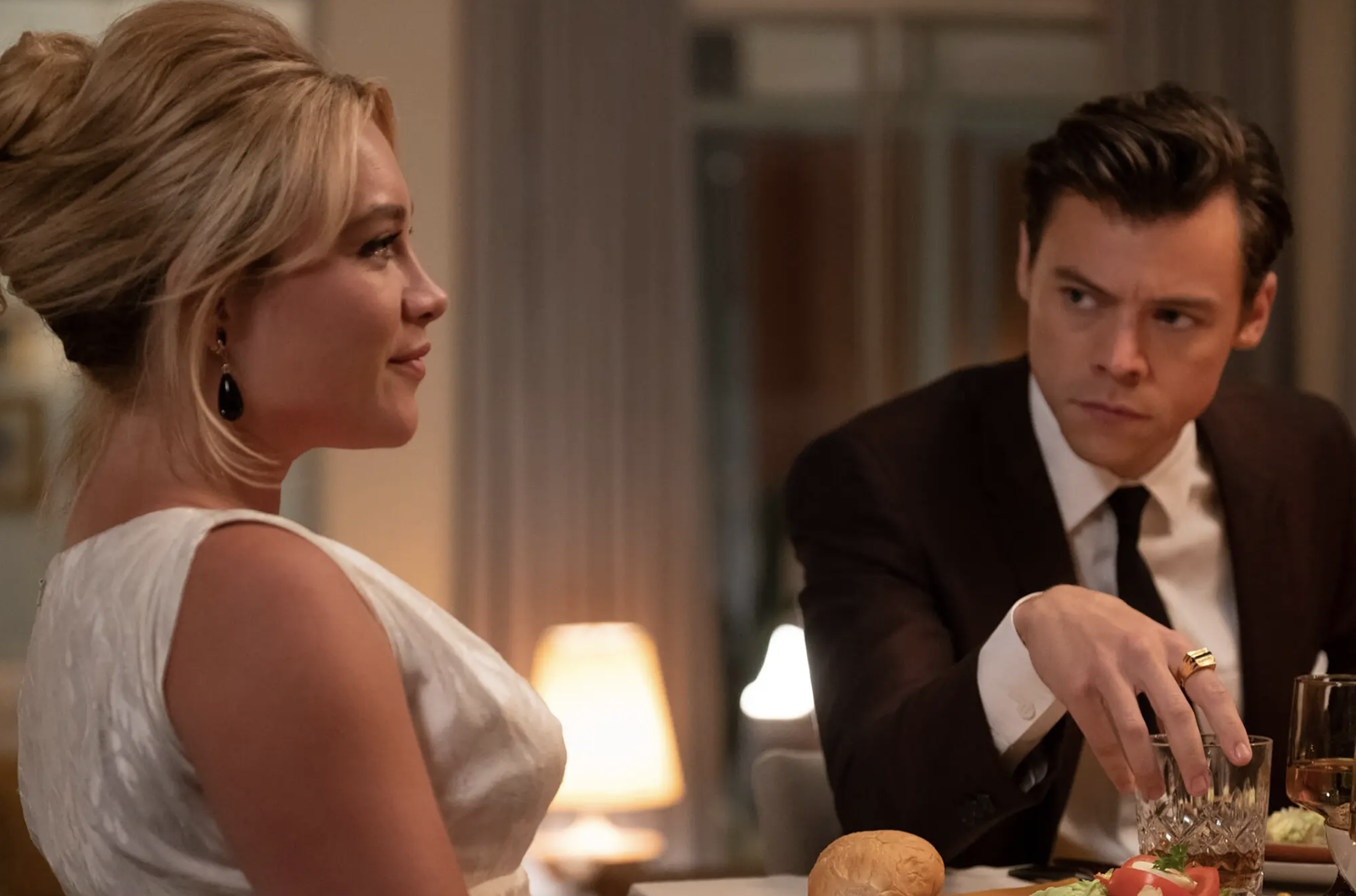
Spoiler Alert! Don't read if you want to go into the movie with fresh eyes.
Don’t Worry Darling has had an overwhelming level of drama and press surrounding it prior to the film’s release. From the initial casting of Shia LaBeouf and his role later going to Harry Styles, to the rumored relationship between the musician and Olivia Wilde, to the video of Wilde referring to Florence Pugh as “Miss Flo,” to the entire Venice Film Festival, Twitter has been given so much material to work with for the past few months.
twitter trying to figure out if harry styles really spit on chris pine at the don’t worry darling premier in venice: pic.twitter.com/H5qns3DcvJ
— maybe: diane (@dianelyssa) September 6, 2022
There is so much conflicting information about whether or not the cast and crew all hated each other during the filming process that it almost isn’t worth it to try and investigate for yourself. And considering how much buzz there was around this film, it feels nearly underwhelming once you’ve actually sat and watched it in the theater.
“Men don’t come in this film, only women here!” Olivia Wilde declared this in her most recent interview for Variety, boldly stating that Don’t Worry Darling is a representation of female pleasure. Set in a picturesque Californian desert town called the Victory Project, Don’t Worry Darling follows couple Jack and Alice as they lead their seemingly idyllic lives. They have a beautiful home, wear beautiful clothes, eat beautiful food and are beautiful themselves. Although a year is never specified, the Victory Project seems to be set in the 50s. The gender roles suggest the same: the men go to work everyday and the women stay home and cook and clean. They’re allowed to shop and spend time with their fellow wives, but they are strictly prohibited from leaving the Victory Project. While the movie does have its fair share of sex scenes, women are ultimately subjected to an immense amount of pain– no pleasure.
The story very quickly unravels, revealing that things are (shockingly) not so perfect in Victory. Aside from the strictly regimented, unsettling gender roles, there are other hints that suggest that something is deeply wrong with Victory. One morning when Alice is preparing breakfast, she is puzzled to crack an egg to find that it, along with the others in the crate, are empty. She then begins to experience hallucinations and has a song that is stuck in her head that she just can’t seem to place.
Florence Pugh is phenomenal as she always is, essentially carrying the weight of the entire film on her back. From her performance in Ari Aster’s Midsommar we know that she has mastered her portrayal of severely traumatized and unraveling women – she’s endlessly captivating to watch, so this performance still feels new and fresh. The same cannot be said for her co-star, the one and only Harry Styles. It’s no secret that Styles is not a trained or seasoned actor, and casting him alongside Pugh only emphasizes the gap in talent between the two. His performance feels hollow and wooden while hers is rich and emotional.
📹| Nueva escena de Harry Styles y Florence Pugh en Don’t Worry Darling
— L&H Media (@LHHQMedia_) August 24, 2022
© Rolling Stone pic.twitter.com/5LvgvXmm5h
Styles’s performance isn’t helped by the film’s script, which leaves so many unanswered questions that the ending feels extremely unsatisfying. The movie has a big twist that is compelling on the surface but is barely explained or investigated. For all of the buildup that there is in this film to discover what exactly is happening in the Victory Project, we don’t get enough time to truly benefit from that suspense.
This movie presents us with ideas that one would hope most audience members would already agree with – incel culture is dangerous, misogyny is real, and women deserve to have agency over their own lives. Beyond that, there is not much to take away from it. Considering what the women in this film are forced to endure, one might have to call into question just exactly what Wilde’s idea of “female pleasure” is.
Harry styles in don’t worry darling pic.twitter.com/UKLLFdB74K
— sam (@zo1oft) August 26, 2022